It’s no secret that ghosting is on the rise. In fact, a recent study conducted by Western University reveals a frightening trend. Of the study participants, 65% confessed to having disappeared on a partner, while an overwhelming 72% reported that they had been ghosted by their partner.
Yes, you read that right, SEVENTY TWO PERCENT!
So, it should come as no surprise that one of the most requested articles I get asked to write is, “should I be texting my ex even though they ghosted me?”
Here’s my answer:
No you should not text your ex if they ghosted you. In fact, texting an ex who ghosted you will usually yield a “no response.” Instead, the best way to deal with a ghoster ex, if you really want a response from them, is to get a point where you have moved on from them and ONLY THEN text them.
There’s a lot to talk about with this one so let me give you a brief overview before we get started.
- We’ll Be Looking At Why Exes Prefer Ghosting
- Why I’m Not A Fan Of Texting An Ex Who Ghosted You At First (Even If You Want Them Back?)
- If You Do Nothing Will A Ghoster Just Contact You?
- Why It’s More About When You Text A Ghoster Ex Than What You Text Them
Let’s begin!

What Are Your Chances of Getting Your Ex Boyfriend Back?
Take the quizWhy Exes Prefer Ghosting
Do yourself a favor.
If you have 30 minutes to spare (which I know seems like a lot) you should listen to this success story interview I had with a woman who was ghosted by her ex.
Her ex literally ghosted her just a few months after she gave birth to their child. To the average person, this probably seems incredibly cruel. And if you were to ask the woman who was ghosted by her ex, she’d agree.
But I bring this up because if you understand anything about why exes ghost you’d see that it makes so much sense.
Let’s Start With The Avoidant Mentality
The most apparent place to begin is with the average avoidant mentality of an ex.
Through various internal polls, we’ve found that the exes of many clients we assist tend to exhibit avoidant attachment styles.
This finding is crucial, given an avoidant’s need for independence.
Understanding attachment styles can be complex unless you find ways to simplify them.
We often do this by helping clients recognize that every attachment style, especially the insecure ones, has a core wound. Anything that triggers or aggravates this core wound will bring out latent avoidant or anxious tendencies.
Avoidants typically value independence above all else, and as a relationship grows closer, these individuals feel triggered and may want to distance themselves. Ghosting can indeed be seen as a manifestation of this core wound symptom.
If we examine the success story I referenced above, her ex left her after she gave birth to their child, which to her ex can be perceived as a loss of his independence. Now being responsible for a child, all the solitary activities and fun parties become a thing of the past, triggering the core wound.
However, there’s another simpler reason why exes often resort to ghosting – they don’t want to hurt your feelings by revealing the real reasons for the breakup.
They Don’t Want To Hurt Your Feelings
Many experts conclude that ghosting says more about the ghoster than the ghosted.
To some extent, I agree with this view, although I believe there’s also an element of sparing your feelings involved.
Often, during breakups, the true reasons for the separation aren’t disclosed because they could be extremely hurtful. Your ex, despite ending the relationship, may still care about your feelings to some degree and not want to cause you pain.

What Are Your Chances of Getting Your Ex Boyfriend Back?
Take the quizYet, they may underestimate your ability to handle the truth maturely.
In the success story I mentioned earlier, I don’t think there was any sparing of feelings involved. Rather, I believe it was more about the activation of the avoidant attachment style.
The Perceived Anxious Trigger
Interestingly, avoidants often attract individuals with anxious attachment styles.
Many of our clients exhibit anxious attachment styles, while their exes who they want to reconcile with, or get over, tend to show avoidant attachment styles.
(Attaching this again,)
This dynamic becomes crucial in our discussion on ghosting, considering that anxious individuals tend to overreact to adverse news due to their inherent need to control situations.
When faced with a fear of abandonment, their own core wound, they may act impulsively.
An ex might choose to ghost you if you’ve shown extremely anxious behavior in the past. They may predict that delivering bad news would result in a negative reaction, possibly in a public forum, and thus choose ghosting as the easier way out.
Why I’m Not A Fan Of Texting An Ex Who Ghosted You At First (Even If You Want Them Back?)
So why is it then that I am not a huge fan of texting your ex after you ghost them?
Let me clarify:
I’m not a fan of texting them immediately, even if you desire to get them back, and there are several reasons for this.
But let me first refer to my ‘avoidant death wheel’ graphic to illustrate my point.
This graphic is designed to depict the lifecycle of a relationship involving someone with an avoidant attachment style.
- It begins with the avoidant person seeking someone to love
- Then finding that person and believing their troubles are over.
- However, they soon start noticing worrying traits about their partner. Typically, this involves anxious tendencies from the partner surfacing, along with the avoidant’s own tendencies pushing them to consider exiting the relationship.
- Then they contemplate ending the relationship, and ultimately…
- They do.
- This leads to a period of elation in the wake of separation.
- Eventually, loneliness creeps in, and they start to self-pity
- Wondering why they can’t find the right person.
This cycle then leads them back to seeking someone to love.
Ghosting tends to occur around stages five and six — when they decide to leave the relationship.
Hence, one of the primary reasons I advise against texting an ex who has ghosted you is that they’re likely in their ‘separation elation’ phase.
They’re rejoicing in their newfound independence, and your text is unlikely to be well-received during this time — much like trying to start a fire in the middle of the ocean.
Taking this discussion a step further, what could you possibly say to a ghosting ex that would convince them to return?
In my decade-long experience, there’s usually no single conversation or action that brings an ex back.
It’s a series of strategic actions and patterns, one leading to the next, that ultimately yield the desired results.
Your success won’t hinge on a single text to your ghosting ex. What often happens when you text an ex right after they’ve ghosted you is that it merely reinforces their perception of your anxious tendencies.

What Are Your Chances of Getting Your Ex Boyfriend Back?
Take the quizTo prove this I scoured Reddit for instances where individuals texted their ghosting exes, often seeking closure, and unsurprisingly, these texts seldom yielded positive results.
This is likely because the ex, reveling in their period of separation elation, isn’t keen on responding. Also, your need for closure might be interpreted as a manifestation of your anxiety.
In their mind, they may think, “See, I was right to ghost them. Look at how they’re behaving.” Ultimately, you end up damaging your own case and their perception of you.
But If You Do Nothing Will The Ghoster Just Come Back On Their Own?
So, this leads us to an intriguing question: If you do nothing and resist the urge to text your ex who ghosted you, will they eventually come back?
This aspect is perhaps the most hypothetical of our discussion today and is less grounded in science.
The closest approach I could take to answer this question involves examining how ex-partners behave when they block you.
Although blocking and ghosting are similar, they’re not identical.
Ghosting tends to be abrupt and without warning, often feeling more personal, especially when the act of ghosting itself serves as the breakup. On the other hand, blocking can seem more of a reflexive reaction, albeit with significant overlap with ghosting.
So, considering how often “blockers” unblock you could provide some valuable insights.
In late 2022, I conducted a poll within our community, asking participants who had been blocked by an ex whether their ex had ever unblocked them.
The results were intriguing.
Out of 139 participants, 64% stated that their ex did unblock them. 12% reported that their ex alternated between blocking and unblocking them, while approximately 24% were still blocked.
These data suggest that there’s roughly a 24% chance you’ll stay ghosted permanently and maybe an 76% chance that, by doing nothing—though I don’t advocate for complete inaction—your ex might unblock you.
This lends support to my argument regarding anxiety.
Often, when you’re blocked or ghosted, you might overreact in an attempt to make your ex unblock you, which just reinforces their perception of you as an anxious individual.
The truth is, if you do nothing, the avoidant’s cycle runs its course, and they may eventually unblock you out of pure curiosity.
Does this happen in all cases?
No, certainly not.
However, it does suggest that the timing of your text to a ghoster might be more critical than the content of your text.
Why It’s More About When You Text A Ghoster Ex Than What You Text Them
A few years ago, I filmed this really great video that focused on how to make an avoidant ex miss you.

What Are Your Chances of Getting Your Ex Boyfriend Back?
Take the quizI’ve referenced this video numerous times in blog posts, podcasts, and other videos—it’s probably my favorite, even though I’d love to remake it someday.
One of the pivotal ideas arising from that video is the concept of “nostalgic reverie” after a breakup.
Avoidants initially go through a period of “separation elation,” but this doesn’t last indefinitely.
If you look at the ‘avoidant death wheel’, you’ll see that by stage seven or eight, they start feeling a bit lonely.
And it’s during this phase that nostalgia kicks in, usually after they perceive that you’ve moved on from them, either onto someone else or just with the passage of sufficient time.
That is when an avoidant allows themselves to miss you.
An insightful quote from one of my favorite avoidant attachment resources, Free To Attach, really backs this up,
“Without the danger of reciprocity, particularly after an ex has moved on, liberation from the fear of engulfment finally gives free reign to an avoidant’s latent romanticism. An ex being truly unavailable may even produce perverse enjoyment. They are at liberty to fully miss and think wistfully of them while it also confirms their self-belief that people won’t stick around them. Sometimes in relationships, they may imagine their partner with another to trigger this.”
This essentially implies that you should ideally reach out to a ghoster only after the separation elation has worn off and nostalgic reverie has set in.
Of course, the common question at this point is, “How the heck do I know when this is happening?”
It’s challenging since individuals vary, but I’ve observed that indirect methods of communication often manifest.
The ghoster may not directly communicate with you, but you may notice they’re watching your Instagram reels, your stories, or liking your photos.
They’re not leaving comments, but there’s a pattern in their actions. They’re allowing themselves to start not necessarily grieving the breakup, but romanticizing it. At this juncture, you can generally text them and get a response.
It doesn’t happen all the time, and some might disagree, but this is the pattern I’ve noticed over the years.
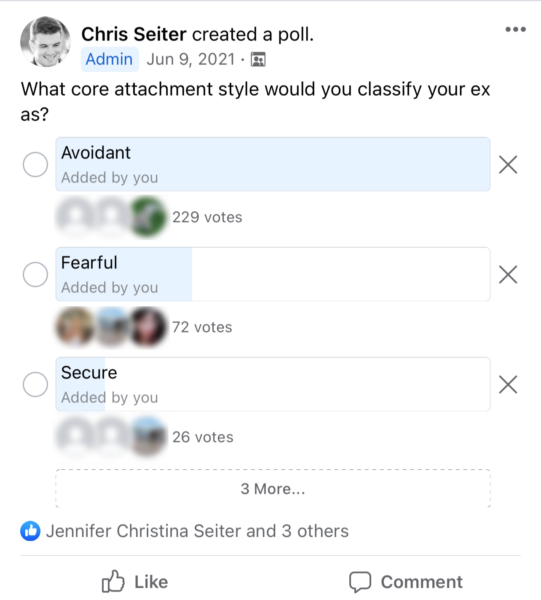
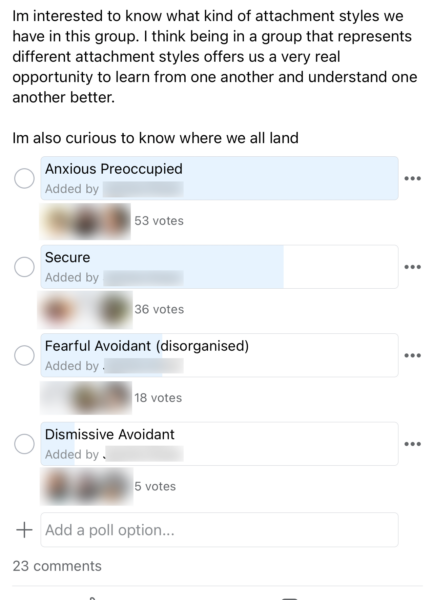
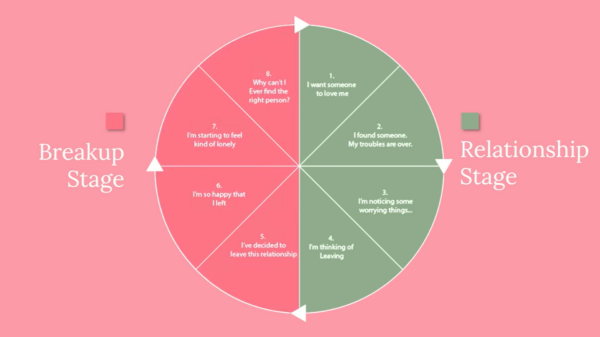
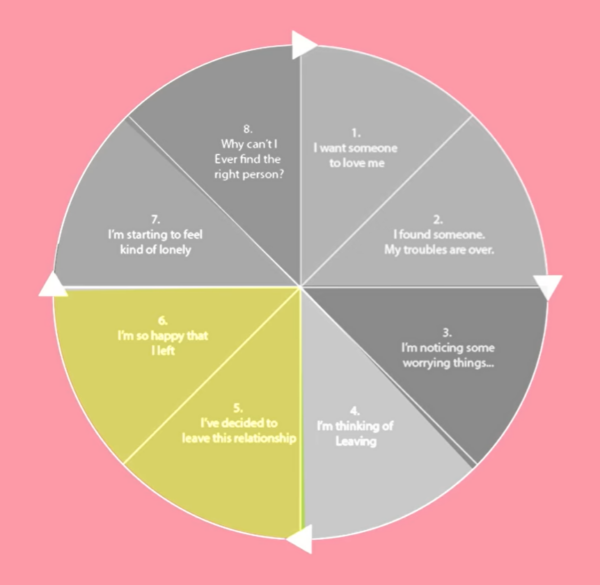
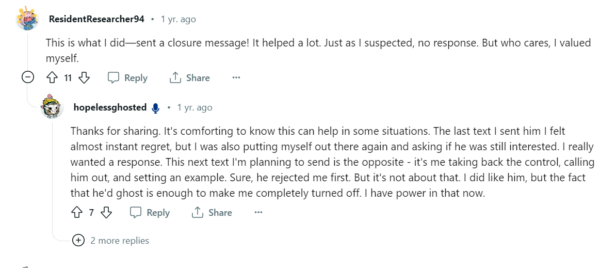
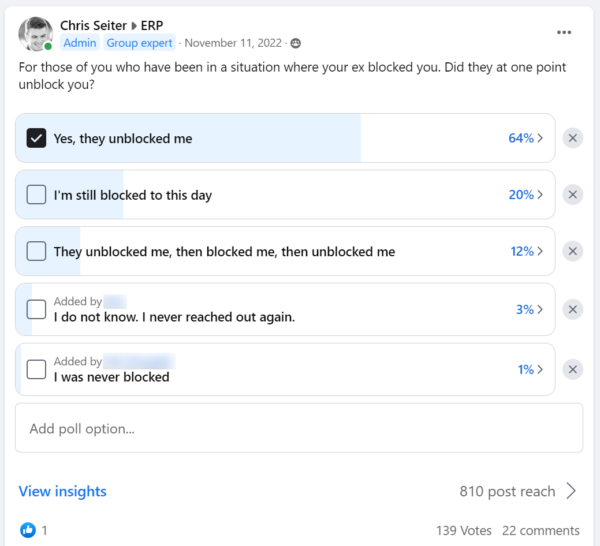
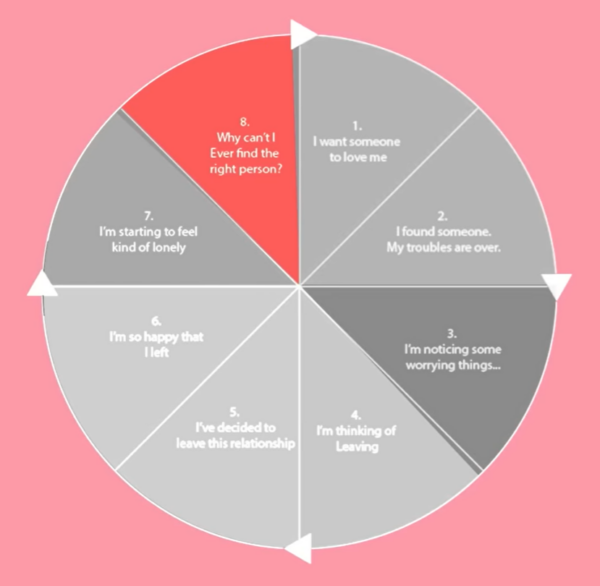
Karina
February 8, 2025 at 11:33 am
I have a question: Can avoidant attachment behavior be called an emotionally mature healthy behavior?
I personally think avoidant attachment type is toxic and narcissist, as the act of ghosting itself.
Michael
January 7, 2025 at 3:13 pm
I was ghosted by someone I was engaged to, after 2 years together. It’s been a year and a half and I’m still not over him, and beginning to think I never will be. But all the advice about how to wait and get him back was really dispiriting to read. I don’t want him back; I just want to survive this
Denise
December 28, 2024 at 1:07 pm
I wasn’t in a relationship with the guy but he ghosted after an argument. He was drunk. Next day I texted him about discussing it with no response. I had already unfollowed him on socials. I’ve been trying to understand and this article makes me rethink him being an avoidant. This entire week he’s watched my stories but never said anything. By day 7 he watched half of them and unfollowed. I figured saying nothing may be the best move at this point.